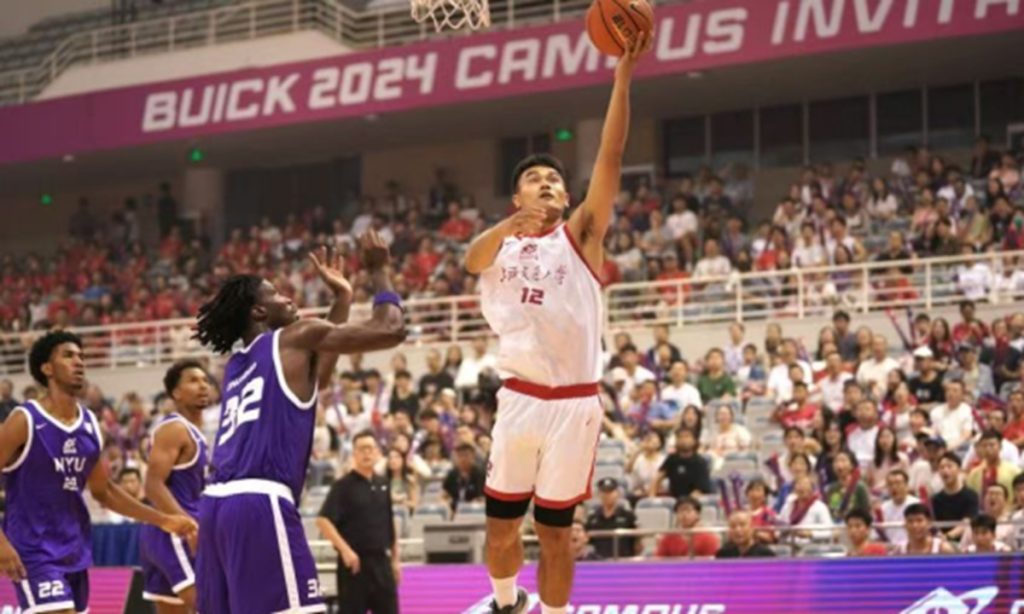Basketball a crucial channel for exchanges between Chinese, US youths

Basketball, one of the three major ball sports in China, continues to play a significant role in China-US cultural exchange. Basketball remains a unifying force, fostering connections and mutual understanding between the two countries.
The recent Olympics highlighted the stark contrast between basketball in the two countries. While the US secured both the men's and women's gold medals in the five-on-five tournaments, China's men's team did not even qualify, and the women's team failed to advance to the quarterfinals. Nevertheless, the sport's influence in China remains profound, and various levels of basketball exchanges between the two countries are actively taking place.
One such example is the recent invitation by the CBA's Xinjiang team to three other foreign basketball clubs, including a team from the US, for a series of friendly matches in China. Although these games were not without contentious moments, the teams managed to reconcile after the matches, demonstrating the resilience and importance of such exchanges.
These opportunities are particularly valuable given the Chinese men's national team's absence from major international competitions in recent years, serving as a necessary substitute for the lack of experience in high-level competitions.
In addition to professional exchanges, grassroots and college basketball also play a pivotal role in fostering connections.
A recent college-level exchange in Shanghai saw the Shanghai Jiao Tong University (SJTU) men's team defeat New York University (NYU) 73-56, while the SJTU women's team was narrowly bested by their NYU counterpart 69-64.
Beyond the court, the event's organizers provided ample opportunities for off-court interactions, allowing players from both universities to bond and learn from each other. SJTU players took on the role of cultural ambassadors, introducing NYU players to the rich heritage and culinary delights of Shanghai, including popular local dishes like xiaolongbao (a type of steamed bun) and shengjianbao (pan-fried pork buns). Some NYU players even expressed a keen interest in learning Chinese characters, highlighting the depth of cultural curiosity and appreciation fostered through these exchanges.
The recent success of young Chinese players on the international stage further underscores the importance of these exchanges. For instance, young prospect Cui Yongxi's impressive performance in the NBA Summer League and Li Yueru's contributions to the Los Angeles Sparks in the WNBA demonstrate the growing potential of Chinese players in the global arena.
Basketball remains a vital channel for China-US cultural exchange, offering a unique platform for fostering mutual understanding and cooperation. Through matches on professional and grassroots levels, sports continue to build bridges between the two countries, paving the way for future collaboration and exploration.







